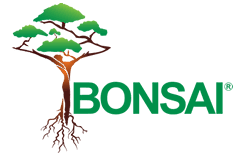Energy, or lack thereof, is something we all bring to any situation. I am not sure, however, we are always in tune with its powerful impact. It’s like a ceiling fan. The speed can be so low that the fan isn’t noticed. Or, it may be cranked up, scattering anything that isn’t nailed down.
Where in this spectrum is your energy level? Do people notice your presence? Does it overwhelm them? Or, do you bring a level of energy that lifts people’s spirits, gets them excited about what’s ahead, and enables you to be of influence?
This is the second in my blog series on speed. My inner geek decided to find my old physics formula, and yes, energy is dependent on speed. Just like we can change our decision-making speed, we can also intentionally moderate our energy level.
Sue Ashford, during her decades of research on leadership at the University of Michigan Ross School of Management, discovered four qualities that people associate with someone in a leader role:
- Sensitive
- Intelligent
- Dedicated
- Dynamic
In my 25 years of experience, I have found that people who bring energy to situations are more likely to be characterized by these traits. The Flippen Group also confirmed the importance of energy by adding “Energy and Expressiveness” as two core leadership characteristics that the Flippen assessment measures.
If you aren’t making contributions, speaking with enthusiasm and showing passion for the issues at hand, you can easily get dismissed as uncommitted, apathetic, lethargic, and even less intelligent (because people might think you have nothing to contribute). Cintia Ribeiro, an Emerging Leader in Science for Monsanto, articulated it well in a recent meeting with my PTLS students:
If you are passionate about it, you are a person.
Bringing energy to a situation shows you have passion, which indicates dedication and is essential for engaging others. When people view you as easy to connect with or relate to, they perceive you as more authentic, sensitive and trustworthy.
How to Become More Dynamic
While being energetic is more natural for some of us, these simple steps can work for anyone:
- Walk and talk a little faster
- Fluctuate your volume and pitch (talk louder if you tend to be quiet)
- Be more expressive with your hands
- Vow to start making at least one additional contribution per meeting
- Look people in the eye and smile
- Smile bigger and more frequently
- Get up and use the white board to illustrate your points
- Share something positive (and genuine) when you enter the room – demonstrate you are happy to be there and give them a reason to be glad also
- Show more energy in the first 20 seconds of meeting someone
- Affirm others contributions by exclaiming “great idea!” with enthusiasm
Simple Steps to Not Overwhelm People
If you tend to have too much energy, then strive to hold back a little. While I don’t suggest frowning, you might do a little less of the items listed above. It is important to:
- Allow others to go first
- Take the time to really listen – do not interrupt
- Get comfortable with quiet space – it isn’t your job to fill it
- Take a more relaxed posture
Few people that I coach have an issue with consistently being overly dynamic. That said, you need to know your audience. For example, when I work with scientists, I find that a typical level of energy for a leader can be overwhelming to them so I intentionally “turn it down” a little.
Your challenge: Over the next week, intentionally experiment with increasing or decreasing your energy level and observe how others respond.





 Britta burrus design.
Britta burrus design.